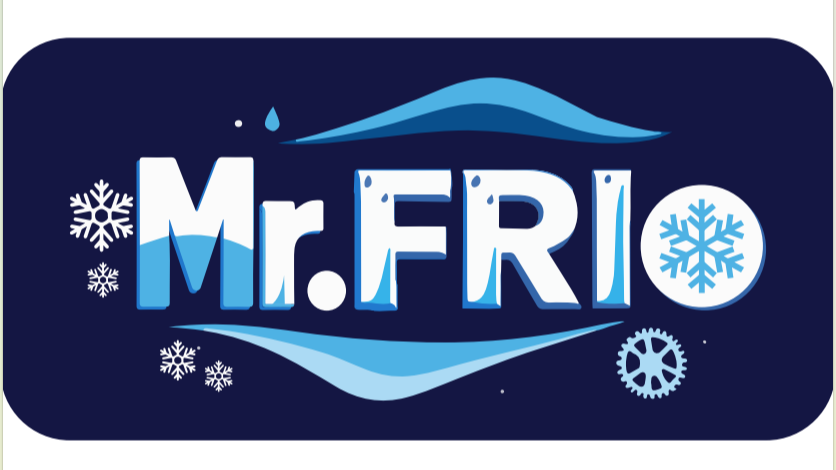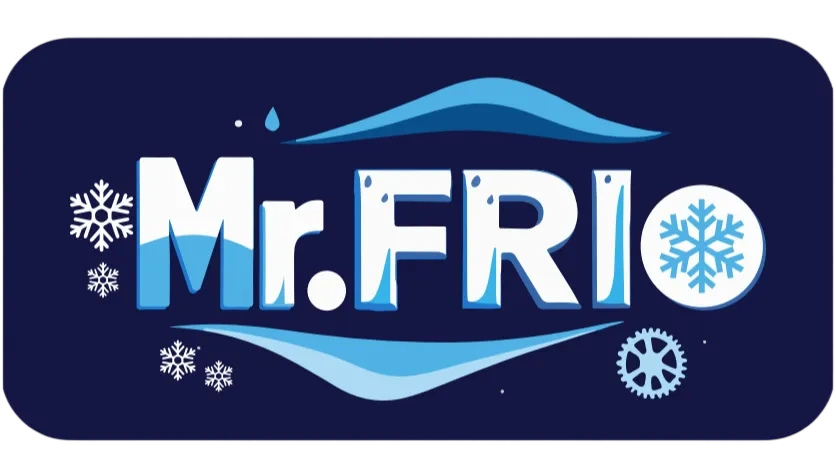Core Benefits of Blast Freezers and Chillers
Energy Efficiency in Flash Freezer Technology
Flash freezers today lead the pack when it comes to saving energy in refrigeration. These units come with better insulation materials and newer compressors that cut down on power needs, which means they outperform older freezing techniques pretty much across the board. The tech improvements have actually managed to slash energy consumption somewhere around 30 percent, so companies can save quite a bit on their electricity bills. Since running costs go hand in hand with how efficient something is, investing in these kinds of freezers definitely pays off financially. Plus, most modern blast chillers feature built-in energy monitors that track usage in real time. This lets operators tweak settings as needed, which keeps costs low while also making operations greener overall.
Extended Shelf-Life for Frozen Food Preservation
Blast freezers freeze things so fast they stop big ice crystals from forming inside food products. This actually helps keep the food tasting good and retains most of its nutrients too. For people shopping at stores or markets, this means getting better quality frozen items than what used to be available before. Restaurants and grocery chains benefit a lot from longer shelf lives as well. They can manage their stock much better when food stays fresh longer in storage. Some tests indicate that right freezing methods preserve perishables way better than old ways did. One study even found some foods lasted almost twice as long properly frozen. That kind of improvement makes a huge difference for anyone running a food business trying to reduce waste while keeping costs down.
Operational Cost Savings With Industrial-Grade Equipment
Putting money into good quality blast freezers pays off over time in ways most people don't realize at first glance. Industrial strength freezers just last longer and break down way less often than those cheap alternatives sitting on the market right now. Maintenance bills drop dramatically when companies invest in proper equipment instead of going for the lowest price tag. When food freezes properly, less gets wasted and shelves get restocked faster too. Take a look at what happened when several meat processing plants switched to better freezing tech last year. They saw real money saved on thrown away inventory while workers spent less time dealing with breakdowns. Plus, production lines actually ran smoother day after day because everything stayed at the right temperature consistently. For anyone running a serious operation where freshness matters, spending extra upfront on reliable freezing systems makes complete business sense in the long run.
Food Safety Advantages
Rapid Cooling With Deep Freezer Capabilities
Blast chillers make a big difference in keeping food safe by quickly lowering the temperature of freshly cooked meals, which stops bacteria from growing so fast. The key thing here is cutting down how long food stays in what's called the danger zone between 40 and 140 degrees Fahrenheit where bad bacteria really start multiplying. Deep freezers handle this job well because they can cool food down fast enough to meet those important time limits set for food safety. Take the FDA recommendations for example they want hot food cooled to 41 degrees or below within just four hours after cooking to stop harmful bacteria from spreading. Blast freezers give restaurants and food service providers the tools needed to hit those targets way quicker than traditional methods. This means better compliance with health codes and ultimately safer food for customers across the board.
HACCP Compliance for Restaurant Freezer Standards
HACCP standards, which stand for Hazard Analysis Critical Control Points, play a major role in keeping food safe across commercial kitchens. Blast freezers have become essential tools for meeting these requirements. The system works by pinpointing possible dangers at different stages and setting up key checkpoints where staff can take action to prevent problems before they happen. Many newer blast freezers come with built-in tech that makes tracking temperatures and recording data much easier day to day. Restaurants that fail to follow HACCP guidelines risk facing steep penalties and losing customers after any kind of food safety issue arises. Smart operators know that spending money on quality equipment with good monitoring capabilities isn't just about avoiding trouble it's actually about protecting their reputation and bottom line in the long run.
Pathogen Control in Frozen Food Storage
Blast freezing plays a big role in keeping harmful bacteria under control in food products, which makes food safer overall. When foods freeze rapidly, it stops dangerous germs like Salmonella and Listeria from multiplying because they prefer warmer conditions. This quick drop to below zero temps basically puts the brakes on bacterial growth and helps prevent illness outbreaks. Food safety groups have done plenty of studies showing how well this works for killing off pathogens. Proper blast freezing remains one of the best ways to keep food safe while it sits in cold storage facilities waiting to reach consumers.
Commercial Versatility Across Industries
Restaurant Freezer Solutions for High-Volume Kitchens
In busy restaurant kitchens that turn out hundreds of meals daily, blast freezers make all the difference. Chefs can flash freeze everything from sautéed vegetables to delicate soufflés without losing texture or flavor. For places running at full capacity, these industrial freezers boost kitchen workflow dramatically. The speed they offer matters most during peak hours when every minute counts between orders. What makes them so valuable is their ability to handle almost anything thrown at them meat cuts, seafood, even baked goods. Many top restaurants swear by blast freezing as part of their standard operations. Some chefs report cutting food waste in half simply because they can store prepared dishes safely for days instead of tossing them after a few hours.
Industrial Freezer Applications in Food Processing
Industrial freezers play a major role in food processing operations where quick cooling is needed to keep production running on schedule. Manufacturers design them specifically for different sectors like seafood processing plants and dairy facilities, where maintaining freshness and meeting safety regulations matters most. When food producers invest in good freezer technology, they typically see better yields and higher quality end products, which helps maintain smooth operations across their entire supply chain. Real world examples from top seafood processors show how implementing advanced freezing systems leads to faster throughput times and fewer quality issues. Some dairy farms report up to 15% improvement in shelf life after upgrading their freezing equipment, proving why these machines remain essential components in today's food manufacturing landscape.
Retail Display Integration for Frozen Merchandising
Blast chillers do two main things in stores today they keep food fresh longer and help create those eye catching frozen displays we see everywhere. When products stay visible and look good on shelves, customers tend to notice them more and actually buy stuff. Retailers have started incorporating energy saving features into their display units lately, something that makes sense both from a green perspective and for cutting down monthly bills. Looking at recent sales figures shows frozen food sections getting more attention these days, partly because shoppers care about how items are presented before making purchases. Smart retailers know this means investing time and resources into proper display setup pays off in multiple ways it builds brand loyalty while meeting modern demands for greener operations across the food sector.
Comparing Blast Chillers vs Conventional Freezers
Temperature Recovery Speed in Flash Freezing
How fast equipment recovers temperature after opening makes all the difference when comparing blast chillers to regular freezers, and this really affects how well food stays fresh. Blast chillers do much better here because they bring down temps so quickly, something that matters a lot during flash freezing operations. When food gets cooled down fast, it keeps better quality, maintains texture, and holds onto more nutrients than what happens with old school methods. Look at busy kitchens for example where time is money. Faster chilling means better tasting dishes and actually saves money long term since these units use less power overall. Tests show blast chillers hit target freezing rates way quicker than standard freezers, which not only makes food safer but also cuts down on waste because products don't spoil as easily.
Energy Consumption Differences in Deep Freeze Systems
When looking at how much power blast chillers use versus regular freezers, the difference matters a lot in today's refrigeration world, with plenty of room for saving money on electricity bills. Recent tech upgrades mean blast freezers actually run better from an energy standpoint, so they're greener options overall. Research indicates these chillers eat up less juice because manufacturers added better insulation materials and installed compressors that work smarter rather than harder. The bottom line? Lower monthly expenses for businesses running these systems. Most energy efficiency tests put blast chillers ahead of standard units, something confirmed across multiple studies over recent years. For food processors and cold storage facilities trying to cut down on carbon footprints without compromising product quality, these freezer innovations represent a win-win situation that keeps things frozen properly while cutting down on wasted energy.
Maintenance Requirements for Industrial Freezer Units
The maintenance needs for blast chillers aren't really comparable to what we see with regular freezers, so regular check ups become absolutely essential if these machines are going to last long enough. In industrial environments where they get used all day every day, there are certain maintenance jobs that just can't be ignored because otherwise things break down and products get compromised. Cleaning those condenser coils, checking all the seals for wear and tear, keeping an eye on refrigerant levels these are all things that take extra care with blast chillers since their internal systems are pretty complicated. According to folks who actually work with this equipment daily, sticking to a good maintenance schedule makes all the difference. They recommend doing inspections regularly and fixing small problems before they turn into big headaches. When companies make sure maintenance stays at the top of their priority list, they not only save money in the long run by extending equipment life but they also maintain that reliable operation that keeps production running smoothly.
In understanding these comparative aspects, businesses can make informed decisions tailored to their specific operational needs, ensuring optimal performance and sustainability in their freezer systems.


